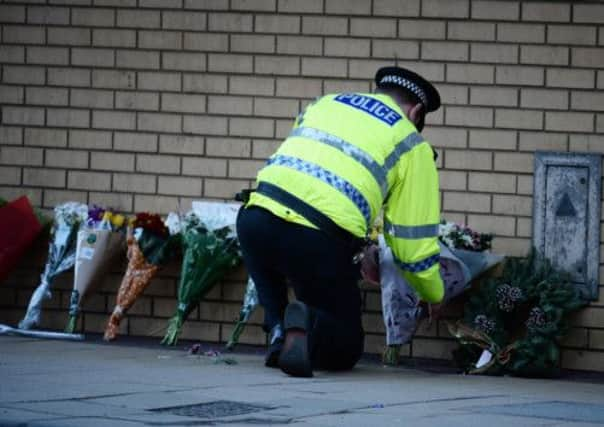Leaders: Tragedy brings out the best


The crashing of the police helicopter into the Clutha bar by the banks of the Clyde is a terrible tragedy. No wonder flags across Scotland fly at half-mast this St Andrew’s Day weekend. Our thoughts and our sympathies are with those left bereaved by this tragedy and the injured.
We have to remind ourselves that accidents like this are thankfully rare. It is to be hoped that the death toll will not rise further, though the site is still the scene of a rescue and recovery operation by the emergency services. It is probably worth bearing in mind that, terrible as this accident has been, it would have been very much worse had it been compounded by fire. For that mercy we give thanks.
Advertisement
Hide AdAdvertisement
Hide AdAmid almost unimaginable confusion and carnage the reaction of Glasgow’s citizens proved exemplary. Far from fleeing from the scene, many so-called “ordinary” Glaswegians’ immediate and instinctive reaction was to run towards the carnage and do whatever they could to assist their fellow citizens. Their fortitude and presence of mind in extreme circumstances proved a reminder that even from the deepest darkness there may spring a source of light. It showed the best of Glasgow; the best of the human spirit.
If Glasgow’s people merit praise for their response to this tragedy, so do the emergency services. Their professionalism is easily and perhaps too often taken for granted. It is a professionalism that is hard won, however, and only maintained by careful training and assiduous attention to detail. We might wish that we needed to see the emergency services at their best less frequently; we remain grateful that their best may be relied upon.
The Clutha bar disaster is another reminder of the dangers inherent in flying by helicopter. This was the third British incident involving a Eurocopter EC-135 in the last decade and the third accident involving a Scottish police helicopter since 1990. According to research conducted in the United States, there are approximately 7.5 helicopter accidents per 100,000 hours flown, an accident rate more than 40 times greater than for fixed-wing aircraft.
In Scotland we are reminded of these hazards too often. As recently as August, a helicopter crash off Shetland killed four people. The nature of the offshore oil-industry mandates the extensive use of helicopters, and while risk can never be eliminated, it is sobering to recall how dangerous flying by helicopter can be.
The inquiry that will quite naturally follow this dreadful accident must be conducted speedily as well as thoroughly. There is little purpose in speculating at this early point upon what lessons, if any, should be learned from this terrible incident. Nevertheless, the inquiry will serve a purpose even if it eventually concludes that this calamity was an accident that was unforeseeable and unavoidable.
No inquiry can ease the pain or loss of those who have lost family or friends this weekend, but it may perhaps make it less likely that other families will in the future suffer this manner of tragedy.
Scrap tuition fees
IMAGINE the outcry that would follow the revelation that children were being charged fees to sit exams in mathematics or history. Such a policy would, quite rightly, be considered shameful. Yet music, and the arts more generally, are treated differently. Until now, many pupils were charged fees to sit music exams.
This newspaper’s campaign has provoked a change in policy. Fees for music exams will be scrapped and more children will have access to musical instruction as a result of our campaign.
Advertisement
Hide AdAdvertisement
Hide AdThe fees for music tuition charged by too many local authorities sent a message that music tuition should not be considered an essential part of every child’s education. It might be desirable but it is not necessary.
By charging as much as £340 for music tuition Scotland’s councils ensured that musical instruction was something reserved for the affluent middle-classes. But denying schoolchildren access to the arts shortchanges them. Music, like the other arts, has the power to transform lives. It opens worlds of wonder to children. The failure to give them affordable and universal access to that wonder squanders their potential. It is a moral as well as an educational disgrace.
The government’s new policy is a good start but it is to be hoped that it will lead to all tuition fees being scrapped.